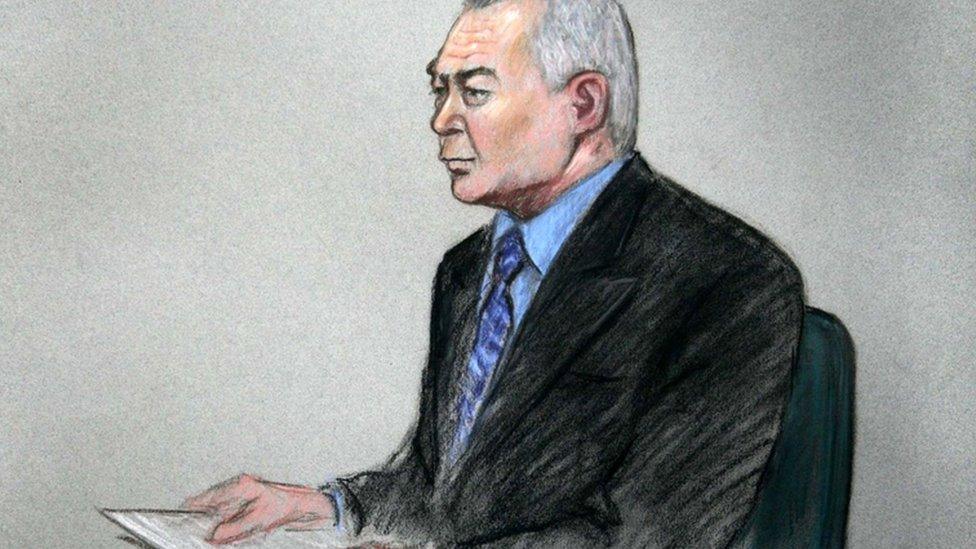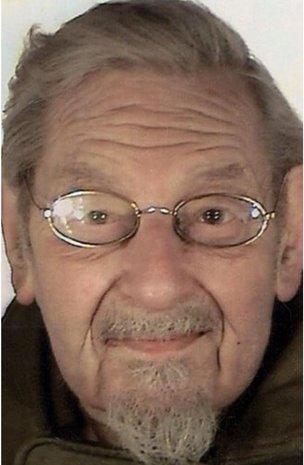Allan Chappelow murder: Wang Yam's secret trial appeal fails
- Published

Yam's lawyers claimed more people would have come forward in his defence had the trial received more publicity
A man jailed for life for murder after a semi-secret trial has lost an attempt to disclose what happened to the European Court of Human Rights.
Wang Yam denied murdering reclusive author Allan Chappelow in north London - but his defence is unknown.
A judge ordered the original case behind closed doors for unspecified security and witness safety reasons.
The Supreme Court ruling could mean cases can be blocked from going to Strasbourg on security grounds.
Yam's lawyers say they are carefully considering the complex and highly unusual decision and whether he can still continue his appeal to Europe.
Mr Chappelow, 86, was found dead at his Hampstead home in June 2006, several weeks after he had been killed. He had suffered severe head injuries.

Allan Chappelow was said by prosecutors to have been killed for his wealth
Three years later, Yam, 54, was convicted of murder after two semi-secret trials that excluded the press and public.
Prosecutors said Yam killed the author to plunder his wealth - but the secret part of the trial covered almost all of the case for the defence and the Crown's response to it.
A judge granted that secrecy order, believed to be the first since the World War Two, after hearing that prosecutors might have otherwise dropped the case.
Before it went behind closed doors, the court heard Yam claimed to have been given Mr Chappelow's cheques, credit cards and banking information by "gangsters" with Chinese names and that he had been assembling evidence as a means of turning them in.
During his subsequent and failed appeal, it emerged there had been four defence witnesses behind closed doors - and his lawyers said others capable of supporting his case could have come forward had there been publicity.

Who is Wang Yam?
Wang Yam was born Ren Hong in China
His grandfather was one of Mao's comrades in the 1930s
Formerly an associate professor of electrical engineering at the Beijing Institute of Technology
Fled China following the 1989 Tiananmen Square pro-democracy uprising
UK later granted him asylum - became a British citizen in 1998

Now serving a minimum 20-year-sentence, he has since asked the European Court of Human Rights (ECHR) in Strasbourg to intervene. However its review of whether he received a fair trial has been in limbo because the British courts won't disclose the secret material.
In a unanimous judgement on Wednesday, external, a Supreme Court panel of seven judges backed that decision - saying English courts could block disclosure on national security grounds, even if the material was at the heart of an appeal.
Lord Mance, the lead judge on the panel of seven, said: "The appellant has not made good the proposition which he needs to establish, namely that there are no circumstances in which refusal to permit disclosure of the in-camera [secret] material to the European Court of Human Rights in the appellant's response could be justified."
Under the international rules governing the European Court, each state promises not to stand in the way of anyone who wants to seek its help.
But the Supreme Court said the long-established block on revealing national security material did not compromise that principle. It won't be clear for some months whether Strasbourg agrees.